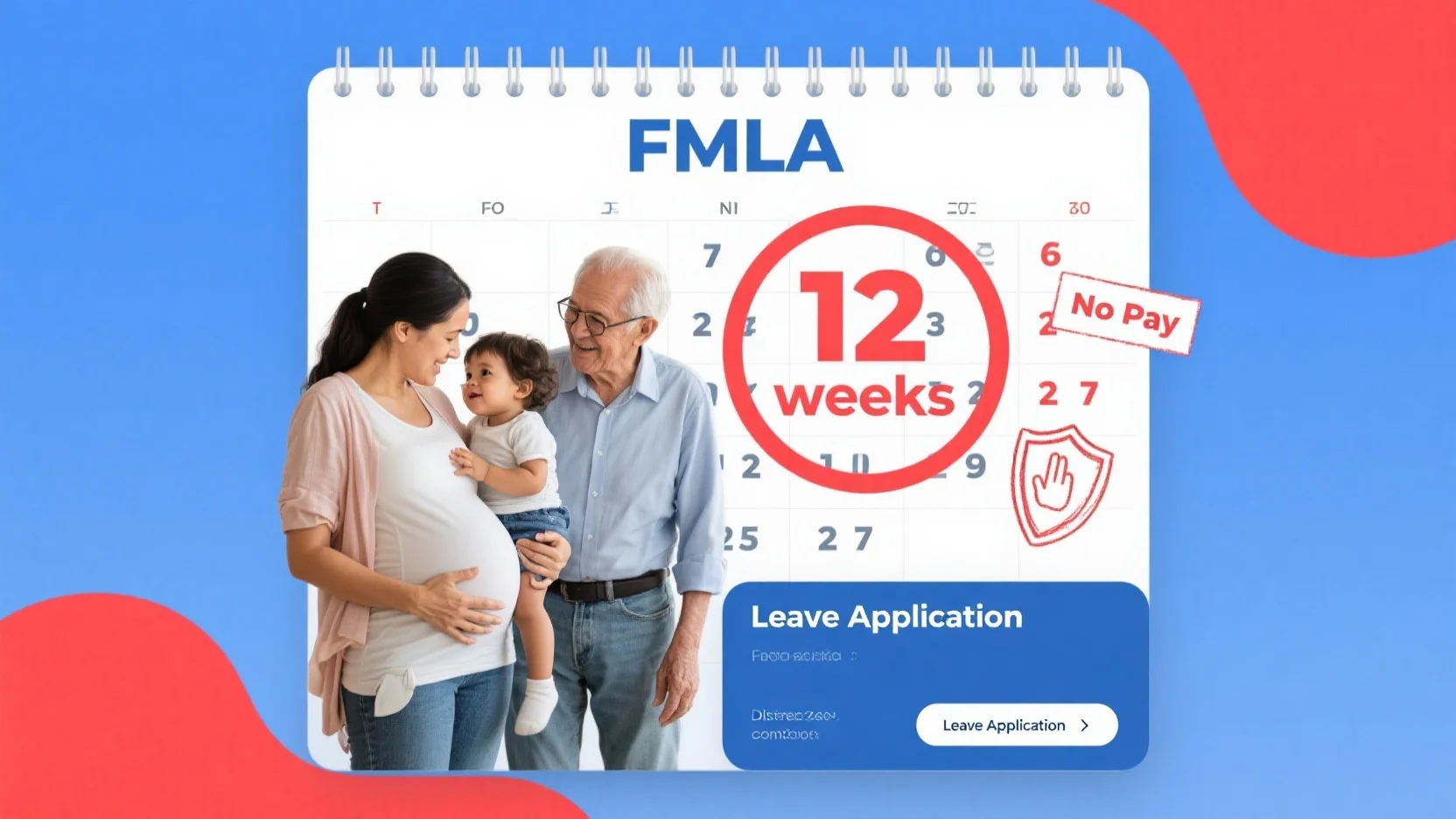📌 What is FMLA?
The Family and Medical Leave Act (FMLA) guarantees eligible employees:
✔ Up to 12 weeks of unpaid leave per year for:
- Childbirth/adoption
- Serious personal illness
- Caring for a sick family member (spouse, child, or parent)
✔ Job protection: Return to the same or equivalent position.
✔ Health insurance continuation (employer must maintain coverage).
**⚠️ Key Limitations**:
- Unpaid leave (only 26% of U.S. workers have paid family leave).
- Not all employers qualify (must have 50+ employees within 75 miles).
🔍 Who Qualifies for FMLA?
You’re eligible if you:
- Work for a covered employer (50+ employees nearby).
- Have 1+ year of employment with the company.
- Logged 1,250+ work hours in the past year.
Covered Situations:
- Pregnancy (birthing and non-birthing parents).
- Bonding with a newborn, adopted, or foster child (within 1 year).
- Caring for a seriously ill spouse, child, or parent.
- Your own serious health condition (unable to work).
**⏳ How to Request FMLA Leave**
- Notify Your Employer:
- Give 30 days’ notice if foreseeable (e.g., due date).
- For emergencies (e.g., premature birth), notify as soon as possible.
- Submit Documentation:
- Employer may require medical certification (e.g., doctor’s note).
- Employer’s Response:
- Must confirm eligibility within 5 business days.
💡 Pro Tip:
- HR is your ally: They’ll guide you through paperwork.
- Track hours/employment dates: Ensure you meet eligibility criteria.
🚫 What FMLA Doesn’t Cover
- Paid leave (unless your employer offers it separately).
- Small businesses (<50 employees).
- Part-time workers (<1,250 hours/year).
Alternatives:
- State programs (e.g., California Paid Family Leave).
- Short-term disability (for pregnancy recovery).
📚 FMLA Resources
- U.S. Department of Labor: FMLA Fact Sheet
- Employer’s HR Department: Request a copy of your company’s FMLA policy.
- Legal Aid: Consult an employment lawyer if denied leave unlawfully.








